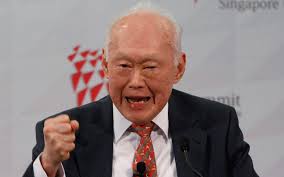Every leader is faced with a long list of issues that are not absolutely central to the implementation of the core vision but that, nevertheless, need attention.
There are, happily, many talented people throughout the organisation who may not have been given the opportunity to demonstrate their abilities. Give them the chance to show what they can do — and solve the issue!
Put different people in charge
Form action groups of people from across the organisation and give them challenges. Put different people in charge of the groups – not always the most senior member of the group.
Create groups with the best mix of talents who are likely to reach a well-rounded conclusion that will be compelling to the senior management team (so that their recommendations may actually be put into practice).
Allan Leighton, ex-CEO of UK’s Asda supermarket chain (now part of Wal-Mart) made great use of ‘positive action groups’ (PAG’s).
‘A great way to spot potential and keep your rising stars motivated is to introduce positive action groups, or PAGs,’ wrote Leighton in his book, On Leadership
‘There are always things in an organisation that need to be fixed so, if there’s an issue, I put a PAG on it. They’re not permanent groups: they take action quickly and then disband themselves. I choose seven or eight people with real potential from across the business. I’ll pick one as leader to report directly to me, and that person may well not be the most senior man or woman in the team. However, that’s part of the development process: you develop people by giving them challenging things to do.’
By-pass existing business structures
Mike Southon and Chris West, authors of The Boardroom Entrepreneur, recommend assembling a collection of talents for what they call ‘micro-teams’ who can explore and develop ‘intrapreneurial’ ideas within larger organisations, by-passing the existing business structures that tend to prevent potentially radical new ideas from emerging or from getting the support that they deserve.
Their ideal micro-team would include a relatively senior ‘sponsor’, who can steer the project through the organisation, getting it the help and support that it needs; an ‘innovator’ – an ideas person; a ‘deliverer’ – someone who can see the project through to completion; a sales person, who can demonstrate the customer demand for the new idea and, finally, a finance person.
Action groups are an opportunity to explore the talents of different colleagues. They are meant to solve real problems and may propose quite radical solutions.
Create Action Groups is explored further in 100 Great Leadership Ideas




